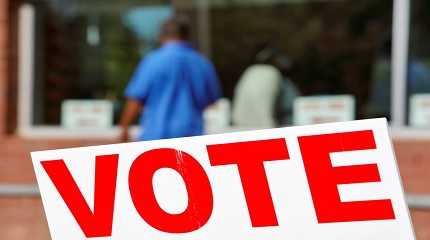
BUENOS AIRES, Oct 22 (Reuters) - Argentines headed to the polls on Sunday to vote in a general election under the shadow of the South American country's worst economic crisis in two decades, which has driven the rise of an outsider far-right libertarian who is in pole position to win.
The vote is likely to roil Argentina's already shaky markets, impact its ties with trade partners including China and Brazil, and set the political path for the country, a major grains exporter with huge reserves of lithium and shale gas.
Polling stations opened at 8:00 am (1100 GMT) with three frontrunner candidates likely to split the vote: libertarian economist Javier Milei, centrist Peronist Economy Minister Sergio Massa and conservative Patricia Bullrich.
Milei, pledging to "chainsaw" the economic and political status quo, is the candidate to beat, with angry voters flocking to his tear-it-all-down message, fed up with inflation at 138% and poverty affecting over two fifths of the population.
"People want things to change," said Federico Aurelio, president of consulting firm Aresco. "How? They have no idea, but they want something different."
Milei, a brash former TV pundit likened to Donald Trump and Jair Bolsonaro, posted a shock win in August open primaries, though Massa and Bullrich were not far behind and it may prove a close race. Pollsters expect no outright winner.
A candidate needs over 45% of the vote or 40% and a 10-point lead to avoid a second round run-off, which would be held on Nov. 19. Voting on Sunday will end around 6:00 p.m. (2100 GMT) and the first results are expected at 9:00 p.m. (00:00 GMT).
Whoever wins will have to deal with an economy on life support: central bank reserves are empty, recession is expected after a major drought, and a $44 billion program with the International Monetary Fund (IMF) is wobbling.
Amid this crisis Milei has risen abruptly, pledging shock therapy to fix the economy including dollarizing, shutting the central bank, reducing the size of government drastically and privatizing state entities.
"He is the only one who understands the situation in the country and understands how to save it," said Buenos Aires student Nicolas Mercado, 22.
Massa, current economy chief, is in the running despite overseeing inflation hitting triple digits for the first time since 1991. He has pledged to cut the fiscal deficit, stick with the peso and defend the Peronist social welfare safety net.
"Massa represents certain traditional guarantees with which I was raised: public health, state education, which is what I want to defend with my vote," said astrologer Flavia Vázquez.
Bullrich, a former security minister who is popular in business circles, has seen her support diluted by the unexpected emergence of Milei. Pollsters see her as the most likely of the top three runners to miss out on a second round.




